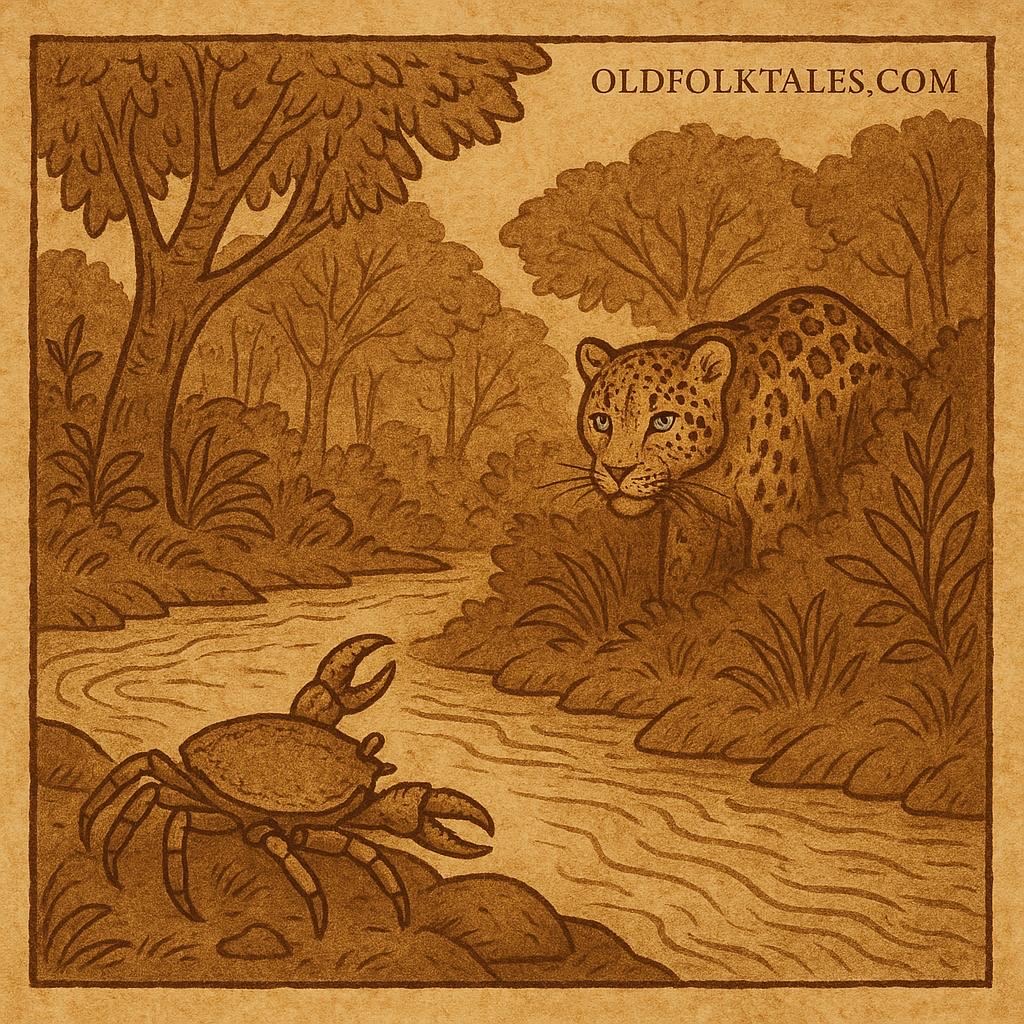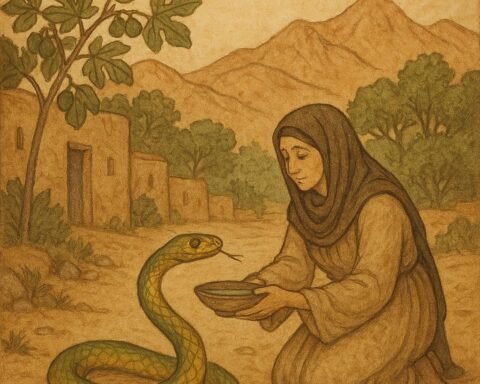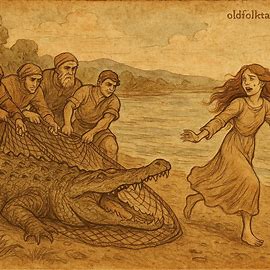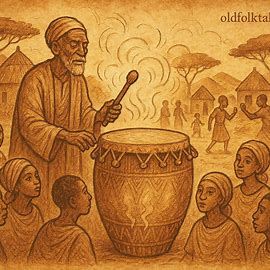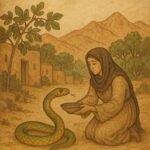Long ago, when the earth was young and animals lived together in villages like people, there was a time of constant quarrels. Each animal wanted to prove its strength, its cleverness, or its right to rule over the rest. The forest rang with boasting, arguments, and endless challenges. In those days, Crab still lived on land, walking proudly among the other animals. His shell was not yet hardened as it is today, and his place in the world was not yet decided.
One evening, as the animals gathered around a great fire, Leopard, who was considered the fiercest, stood up and declared that every animal must pay tribute to him. “I am the strongest,” he growled, his teeth shining in the firelight. “None can resist me. From today, each of you must bring me food or face my anger.”
The smaller animals trembled, but not Crab. He was quiet by nature, yet he carried wisdom that few noticed. He thought to himself, “Leopard may be strong, but his pride blinds him. If I do not act carefully, his greed will consume us all.” Crab decided he would not openly challenge Leopard, for that would mean certain death. Instead, he would act with subtlety.
READ THIS: The Hyena and the Drum
The next morning, Crab approached the riverbank. He looked at the flowing water and felt a strange calmness. The river whispered of freedom, of safety, and of a new way of life. While the other animals feared the river, Crab felt it calling to him. He crept slowly to the water’s edge, testing its cool surface with his claws. Unlike the dry land, the river offered a place where Leopard’s paws could not easily follow.
From that day, Crab made his home in the water. At first, the animals laughed at him. “Crab has run away!” they mocked. “He hides because he is too weak to face Leopard.” But Crab paid no attention. He built his burrows in the sand, learned to move with the currents, and grew comfortable in his watery world.
When Leopard came demanding food, Crab was nowhere to be found. The animals on land continued to suffer under Leopard’s rule, yet Crab remained free. Even the mighty Leopard could not reach him beneath the water. The river protected him, and his choice gave him peace.
In time, the animals began to understand the wisdom of Crab’s decision. They saw that he had not run away in fear but had chosen survival over pride. His move to the water was not cowardice, but cleverness.
And so it has remained ever since. Crab lives in the water, away from the endless quarrels of the forest. He carries his hard shell as both armor and reminder, teaching that true strength often lies in knowing when to step aside and choose a safer path.
Moral Lesson
The story of Why the Crab Lives in the Water teaches us that wisdom is sometimes greater than strength. Crab did not fight Leopard with force, nor did he let pride lead him into danger. Instead, he chose safety and survival by moving into the water. This shows that there are times when stepping aside is not weakness, but a form of strength. True courage is found in making choices that preserve life and protect freedom, even when others may not understand at first.
Knowledge Check
What is the main lesson of Why the Crab Lives in the Water?
The story teaches that wisdom and caution can be stronger than pride and force, showing the importance of choosing survival over unnecessary conflict.Why did Crab decide to leave the land and live in the water?
Crab saw that living in the river would keep him safe from Leopard’s demands and greed, giving him freedom from danger.How did the other animals react when Crab first moved to the water?
They mocked him, thinking he was weak or cowardly, but later they realized his decision was wise.What does Crab’s hard shell symbolize in the story?
It symbolizes protection, wisdom, and the reminder that careful choices can provide lasting safety.How does Leopard represent the dangers of pride and power?
Leopard’s demand for tribute and his boastful pride show how selfish leadership can harm a community.Why is Crab considered wise instead of cowardly in the end?
Because his decision to live in the water allowed him to escape Leopard’s control and live peacefully, proving that foresight and caution can be powerful.Cultural Origin: Gabonese folktale (Mpongwe Tribe), recorded by Robert H. Nassau in Where Animals Talk: West African Folklore Tales (1914).
